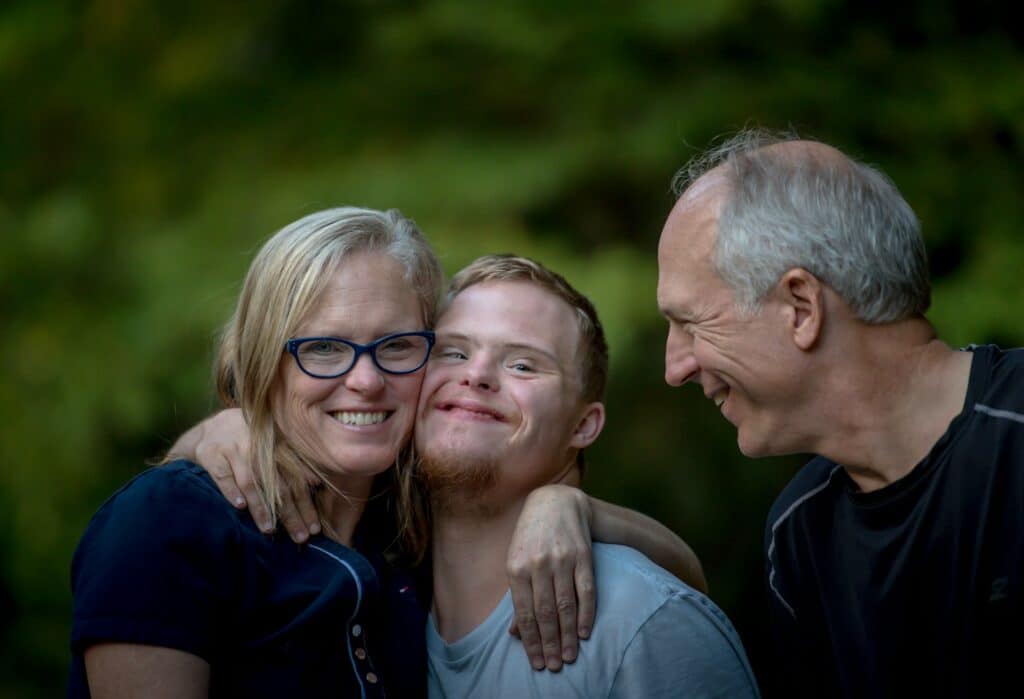Family dynamics can be complex and challenging to navigate, with every family facing its own unique set of issues and conflicts. As individuals grow and evolve, so too do the dynamics within a family. These changes can lead to miscommunications, misunderstandings, and conflicts that may harm relationships and create emotional distance. Therapy can be a powerful tool for improving family dynamics, helping families understand each other better, communicate effectively, and build healthier relationships.
Understanding Family Dynamics
Family dynamics refer to the patterns of interactions and relationships between family members. These dynamics are influenced by various factors, including cultural background, family history, and individual personalities. Family dynamics can significantly impact an individual’s mental and emotional well-being, shaping how they relate to others and perceive themselves.
Some common issues that affect family dynamics include:
- Communication breakdown: Poor communication can lead to misunderstandings, resentment, and conflict within a family.
- Parent-child conflicts: Differences in expectations and parenting styles can lead to tension and disagreements between parents and children.
- Sibling rivalry: Competition and jealousy among siblings can create an atmosphere of tension and hostility.
- Divorce or separation: Changes in family structure can be challenging for all members, leading to feelings of loss, anger, and confusion.
- Substance abuse or addiction: The presence of addiction in a family can create chaos and strain relationships, as family members may feel helpless or frustrated.
- Mental health issues: Depression, anxiety, or other mental health disorders can affect family dynamics, making it difficult for family members to understand or support each other.
The Role of Therapy in Improving Family Dynamics
Therapy provides a safe and supportive environment for families to explore their dynamics, identify underlying issues, and develop healthier ways of interacting. Several types of therapy can be beneficial for families, including:
Family Therapy
Family therapy involves working with a therapist trained to help families navigate their dynamics. It focuses on improving communication, resolving conflicts, and strengthening family bonds. Through family therapy, members learn to express their feelings and thoughts constructively, fostering a better understanding of each other’s perspectives.
Individual Therapy
Individual therapy can also play a crucial role in improving family dynamics. It allows individuals to work through personal issues that may affect their relationships with family members. By gaining insight into their emotions and behaviors, individuals can learn healthier ways of relating to their family.
Couples Therapy
Couples therapy is beneficial for parents or partners experiencing relationship difficulties. It helps them understand each other’s needs, improve communication, and develop strategies for resolving conflicts. A strong partnership between parents or caregivers can positively impact the entire family’s dynamics.
How Therapy Can Improve Communication
Effective communication is at the heart of healthy family dynamics. Therapy can help families develop better communication skills by teaching them how to express themselves openly and listen actively. Here are some ways therapy can improve communication within a family:
1. Active Listening
Therapy emphasizes the importance of active listening, which involves fully engaging with what the other person is saying without interrupting or judging. By practicing active listening, family members can better understand each other’s perspectives and feel heard and validated.
2. Expressing Emotions
Many families struggle with expressing emotions, leading to misunderstandings and resentment. Therapy provides a safe space for family members to share their feelings and emotions, helping them communicate more openly and honestly.
3. Conflict Resolution
Conflicts are inevitable in any family, but how they are resolved can significantly impact family dynamics. Therapy teaches families constructive ways to resolve conflicts, such as compromising, finding common ground, and managing disagreements healthily.
4. Setting Boundaries
Boundaries are essential for maintaining healthy relationships within a family. Therapy helps families understand the importance of boundaries and how to establish them, ensuring everyone respects each other’s needs and limits.
Enhancing Emotional Connection
Emotional connection is vital for strong family dynamics. Therapy can help families strengthen their emotional bonds by fostering empathy, understanding, and compassion. Here are some ways therapy can enhance emotional connection within a family:
1. Building Empathy
Empathy involves understanding and sharing the feelings of others. Therapy encourages family members to put themselves in each other’s shoes, fostering a deeper understanding of each other’s experiences and emotions.
2. Healing Past Wounds
Unresolved issues from the past can create emotional distance within a family. Therapy provides a space for family members to address and heal past wounds, allowing them to move forward and build stronger connections.
3. Celebrating Strengths
Therapy helps families recognize and celebrate each other’s strengths and positive qualities. By focusing on what makes each member unique and valuable, families can build a more supportive and loving environment.
4. Encouraging Vulnerability
Being vulnerable and open about feelings and experiences can strengthen emotional connections. Therapy encourages family members to be vulnerable, creating an atmosphere of trust and intimacy.
Addressing Specific Family Challenges
Every family faces unique challenges that can impact their dynamics. Therapy can provide targeted support and strategies for addressing specific issues, such as:
1. Parenting Challenges
Parenting can be stressful and challenging, especially when dealing with behavioral issues, academic pressures, or developmental milestones. Therapy can help parents develop effective parenting strategies, improve their relationship with their children, and create a nurturing environment for growth and development.
2. Blended Family Dynamics
Blended families often face unique challenges, such as adjusting to new roles, navigating loyalty conflicts, and merging different family cultures. Therapy can help blended families develop a shared identity, establish new traditions, and create a harmonious family environment.
3. Coping with Divorce or Separation
Divorce or separation can significantly impact family dynamics, leading to feelings of loss, anger, and confusion. Therapy can help families navigate these changes, process emotions, and develop healthy coping strategies for adjusting to new family structures.
4. Supporting Mental Health
Mental health issues can affect family dynamics, creating stress and misunderstanding. Therapy provides a space for families to understand mental health conditions, learn how to support affected members, and develop strategies for maintaining a healthy family environment.
The Benefits of Therapy for Family Dynamics
Therapy offers numerous benefits for improving family dynamics, including:
1. Improved Communication
Therapy helps families develop effective communication skills, fostering a more open and honest dialogue between members. Improved communication leads to better understanding, reduced conflicts, and stronger relationships.
2. Stronger Emotional Bonds
By enhancing empathy and understanding, therapy strengthens emotional bonds within a family. Stronger emotional connections create a more supportive and loving family environment, promoting overall well-being.
3. Enhanced Problem-Solving Skills
Therapy equips families with problem-solving skills and strategies for managing conflicts. By learning how to address challenges constructively, families can navigate difficulties more effectively and maintain a harmonious dynamic.
4. Greater Resilience
Families that undergo therapy often become more resilient, better able to cope with stress, change, and adversity. Resilience allows families to bounce back from challenges and maintain a positive and supportive environment.
5. Improved Mental Health
Therapy can improve the mental health of individual family members by providing support, understanding, and coping strategies. Improved mental health positively impacts family dynamics, creating a healthier and happier family environment.
Conclusion
Therapy can be a transformative tool for improving family dynamics, helping families navigate challenges, enhance communication, and build stronger emotional connections. Whether dealing with parenting issues, coping with divorce, or addressing mental health concerns, therapy provides a supportive environment for families to grow and thrive together. By investing in therapy, families can create a more harmonious, loving, and resilient dynamic that promotes overall well-being and happiness.




